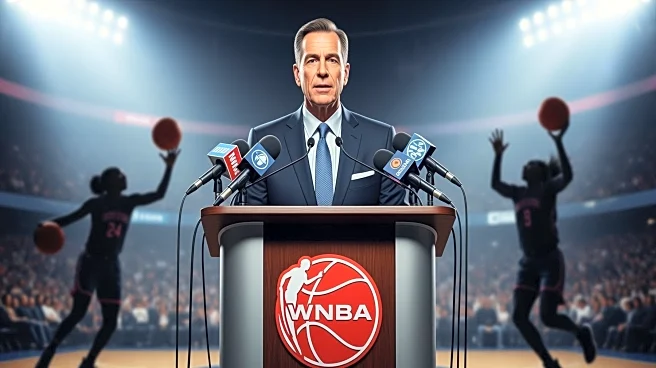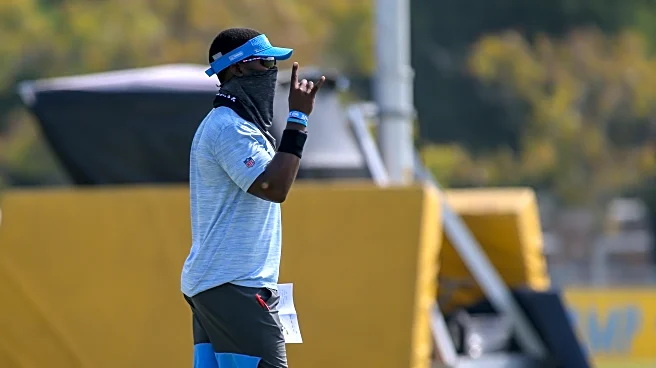What's Happening?
WNBA Commissioner Cathy Engelbert is facing criticism following comments allegedly made about player Caitlin Clark. Minnesota Lynx star Napheesa Collier claimed Engelbert suggested Clark should be grateful for her earnings off the court, attributing them
to the platform provided by the WNBA. Engelbert denied making these comments, emphasizing Clark's impact on the league and her role in attracting new fans. The controversy arises amid ongoing negotiations for a new Collective Bargaining Agreement (CBA) between the league office and WNBA players. South Carolina Gamecocks head coach Dawn Staley has defended Engelbert, acknowledging the personal nature of negotiations and the accomplishments Engelbert has achieved for women's professional basketball.
Why It's Important?
The backlash against Cathy Engelbert highlights tensions within the WNBA as players and the league negotiate a new CBA. The outcome of these negotiations could significantly impact player salaries, media rights, and the overall growth of women's basketball. Engelbert's leadership and negotiation strategies are under scrutiny, affecting her reputation and the league's public image. The support from influential figures like Dawn Staley suggests a divide in opinions within the basketball community, which could influence the negotiation dynamics and the future direction of the WNBA.
What's Next?
As negotiations continue, the WNBA and its players must address the concerns raised by Collier and others to reach a mutually beneficial agreement. The league's ability to navigate these challenges will be crucial in maintaining player satisfaction and advancing the sport. Stakeholders, including players, coaches, and fans, will be closely monitoring the developments, with potential implications for player contracts, league policies, and the WNBA's market position.
Beyond the Headlines
The controversy surrounding Engelbert's comments underscores broader issues of gender equity and representation in professional sports. The negotiation process may prompt discussions on how women's sports are valued and supported compared to their male counterparts. This situation could lead to increased advocacy for fair compensation and recognition of female athletes' contributions, potentially influencing policies beyond the WNBA.















